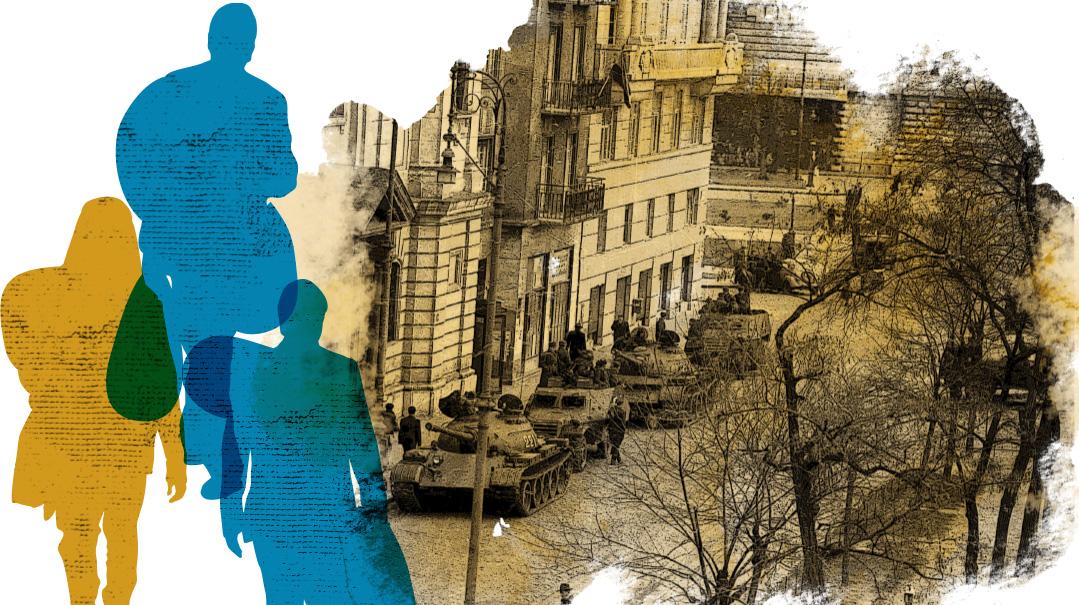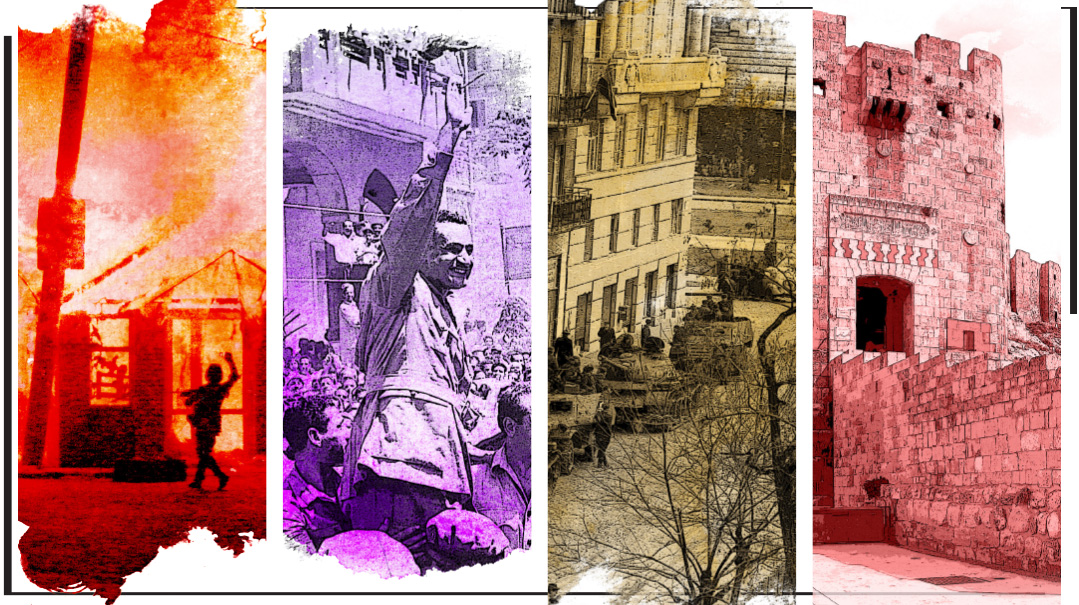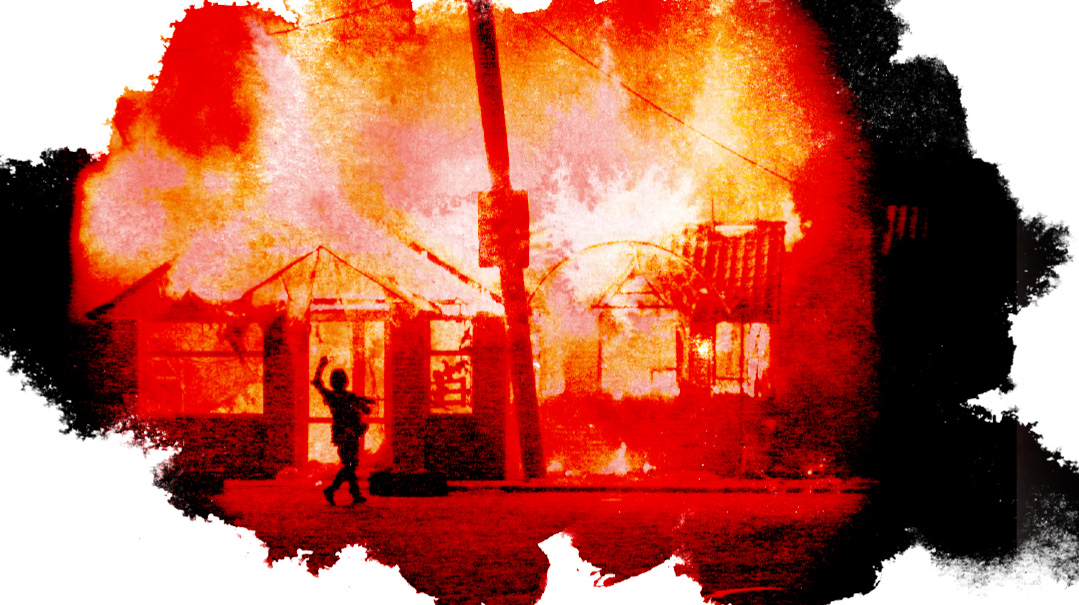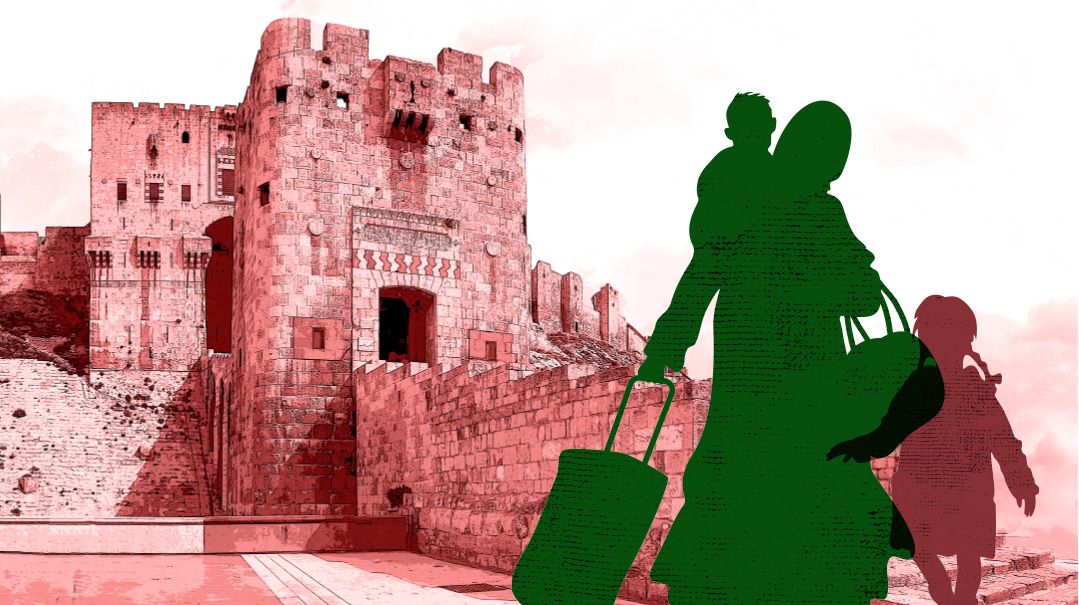Riches to Rags

His name was Gamal Abdul Nasser. I’d never heard of him before, but he was about to destroy my perfect childhood world
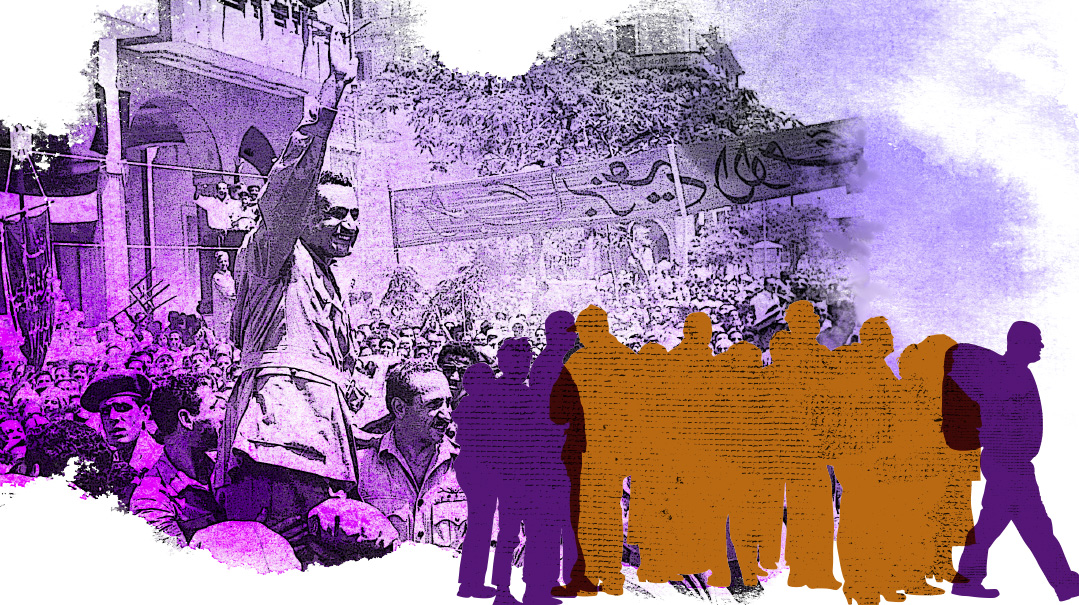
Photos: AP Images
As told to Leah Gebber by Mrs. Bella Sharer
AS
a young girl, I would sit next to my father under the ornate ceiling of the Ben Ezra Synagogue in Cairo, and when everyone stood up, I’d inspect my white Shabbat shoes. My father’s voice would ring out as he bid for the honor of placing the silver crown atop the sefer Torah before it was returned to the aron kodesh. And then he would lead me to the bimah and lift me into the air. I would grasp the silver keter and stretch and stretch and set the crown in its place.
This was my world, a world that was lost.
A kitchen filled with women: mother, grandmother, aunts, and cousins. The sound of rice poured onto the table and the chatter as so many pairs of arms shot forward to check the grains for infestation, fingers moving, rice sliding over the tabletop and into a glass container. Great crates of tomatoes being skinned and pushed through sieves to make tomato sauce and the smell of vinegar and sugar as the seasonal produce was pickled.
An olivewood box, crafted by hand in the far-off land that was Eretz Yisrael, purchased by my father on one of his business trips. It was covered in scenes that felt alive in our hearts: Kever Rachel with its distinctive dome, Mearat Hamachpeilah. They were the places we learned about, read about, but only dreamed about. Far more real to me was the Sphinx and the Pyramids, which were a regular Sunday afternoon destination.
It was a world of affluence and tranquility. Cairo was an ancient Jewish community, with a glorious history of scholarship and chesed. As a child, I was safe and secure in the arms of my beautiful family. All that was asked of me was that I learn my French verbs and arrive at school before the old-fashioned bell rang.
This was my world, a world that was lost.
Conversations. Raised voices. Worry lines etched into foreheads. Arguments. What does this mean? Will it simply pass? Jews have survived, surely this means nothing. We are affluent members of society, contributing wealth and commerce. Why would they target us when to do so hurt themselves?
My world always seemed very small. School, kitchen, the almond trees, the beit knesset. But now there were rulers and kings. A military. A name that was repeated again and again until even I, a young girl of eight, recognized it: Gamal Abdel Nasser.
And then another name, a phrase: Suez Canal. Suez Crisis. Suez Canal Crisis.
Suez Canal Crisis. Who cared?
Nasser. What did he have to do with us, living our little lives?
I understood nothing. Only that when three soldiers knocked on the door, my mother was just as frightened as I was.
They ordered us to the police station — a huge, imposing building that I used to race past, for fear of the place. As we walked in, I saw a prison inmate. He looked at me with dark, wide eyes, eyes with a message I did not recognize but that filled me with fear. Later, I would see the same in the eyes of some survivors. It was the look of despair.
The police chief informed us that we had seven days to leave the country, and that my father’s business had been taken by the government, his bank account and assets frozen. Just like that, we were penniless. Homeless.
I don’t remember how we walked home, but we held hands. I don’t know how my mother told all this to my father, but soon after we got back, he left. For hours, he was gone, and when he returned, he too was defeated.
He had been to every contact he knew: Wealthy businessmen. Members of the royal family. Government officers. My family held three passports — British, French, and Egyptian. But Nasser expelled three groups: the British, the French — and the Jews. And he would not be moved.
“Be grateful,” they told him. “It is only material goods, money. Only your home and your business. They left you your family.”
We weren’t alone. All around, the sound of wailing, anger, terror, mourning. The frenzy of trying to pack up assets when we knew that none could be taken with us. Forty dollars and clothing, nothing more.
If none of his contacts could help, my father would enlist the help of the great tzaddik of Cairo, the Rambam himself. We gathered blankets and cushions and walked to the ancient Jewish quarter. There, we entered the beit knesset where the Rambam had prayed so many centuries before. There was a tradition that all who drank water from the Rambam’s well and slept overnight in his beit knesset would see him in a dream, where he would prescribe the means of salvation.
The water was cold and tinny, and I gulped it down. We lay down to sleep, but the floor was hard and I was terrified of mice or rats. When I finally slept, I had no dreams. I do not know if the Rambam appeared to my father that night, what I do know is that the next morning, my father was tranquil.
The next few days were like being stuck in a great sea of nothing. We should have been preparing for the journey, but we could not take anything with us. My mother walked around our home, touching the furniture, stroking her candlesticks. Our Arab neighbors, who had always been friendly and peaceable, walked in and pointed at whatever they wanted. A painting. My mother’s diamond ring. An upholstered chair.
As we were allowed to take clothes along, my mother took us to a department store and bought skirts, trousers, and undershirts. She forgot that we would soon grow out of the sizes we were in. For years we wore clothing that was too small — and then we sold it to buy food.
I will never forget the moment we stepped over our threshold for the last time: me and my brother, my parents, my aunt, uncle and cousins. We left the front door wide open behind us. Nothing was ours any more.
We traveled to France by ship, arriving in the middle of winter. In the blazing heat of Egypt, we had to siesta every afternoon between one and three to escape the intense temperatures. Now, the cold settled on me and I couldn’t shake it away. My father, who had suddenly turned into an old man, would go to a nearby forest and chop firewood so we could at least huddle around the ovens.
But there was hope. Emissaries from Israel persuaded us not to make a life in France, but to come to Israel. They promised us schooling, a job, an apartment. Above all, they gave us a picture of another life, a beautiful life.
We boarded the ship to Israel on Erev Pesach. For seven days, while the tired ship fought its way through the endless ocean, we ate matzot and fruit. In Egypt, the matzot had been huge and white — my father would carry in large crates of them. For the first time, we ate brown, hard matzot. There were no dates, picked fresh from the palm, for my mother’s delicious charoset. At home, a few weeks before the chag, a seamstress would come to the house. She came for an entire week, returning to her home only to sleep. She would sew new clothing for everyone in the family — beautiful dresses my mother had designed. That Pesach, on the boat, I wore only the clothes we had brought along, already getting too small on me.
On Isru Chag, the ship dropped anchor in Haifa. Jewish Agency workers wanted to take us to Be’er Sheva, but my father refused. He had heard it was a dusty development town in the Negev and thought it would not be a good life for us. Instead, we went to Herzliya, the only Sephardim among hundreds of Polish survivors.
We were taken to a transit camp and ushered into our new home: a tzrif, a rough shack made of asbestos boards, with no electricity or running water. The bathroom was a hole in the ground in a small outhouse.
In one of the tzrifim lived an elderly woman, a survivor. They were all survivors. She strung a net over the window to keep out the mosquitoes and I would watch her there, a dim shadow, saying Tehillim. She was always davening. She planted a vegetable garden and cultivated it with devotion. It gave her food to eat, and she sold some, too, making a little money on the side.
There was another man I remember, another survivor. Every Yom Kippur, he would dress in his striped Auschwitz uniform, go out to the street, and light a cigarette. People tried to stop him, but he would cry, “After all I’ve seen, how can I still believe?’
We ate black bread and pickled herring from a huge barrel — so very different from the Sephardic delicacies that my mother and aunts would prepare.
Despite the squalor, despite the fact that we were destitute, I was happy. I made friends with girls my own age, and we were given a lot of independence. We’d stay out late, chatting and joking and enjoying the cool sea breeze.
What was hard for me, though, was to see my father unemployed. He had married late in life, and by then he was in his fifties. He tried to get work teaching French to some of Herzliya’s rich residents, but there were no real jobs. In Egypt, he had been a successful and wealthy businessman, a friend of the rich and powerful. But here, not only was he a nobody, he was a Sephardic nobody.
My father refused to give in. He had been in contact with the French embassy and received some compensation for our assets. With this money, my parents booked passage on a ship to England. My father — the only one of us who didn’t have a British passport — was unable to leave with us, and so my mother, brother, and I left alone.
It should have been easier arriving in England. Already twice — once in France and once in Israel — we had come with nothing. But exile never gets easier. We were directed to a refugee shelter and then our salvation came in the shape of a very special man — Rabbi Sender Dominitz, who dedicated his life to helping his fellow Jews. Rabbi Dominitz brought us into his home, where he portioned off a bedroom and kitchenette for us to use. He took up a collection to provide us with everything we needed. As Pesach was coming, he bought us two new pots, so we could cook our own dishes.
We lived with the Dominitz family for a year, until my father’s passport and citizenship application was approved and he was finally allowed to enter England. Then we moved into an apartment of our own. I returned to school, after more than two years of simply surviving, and we began to live again.
Life would never be the same. Stability is a blessing. Wealth can be snatched away. Status can dissolve. But something is left — and you are what you make of all that remains.
Mrs. Bella Sharer lives in London, where she is known for opening her home to those in need — both individuals and entire families — for months and even years at a time. Sixty-five years after Rabbi Sender Dominitz took young Bella and her family in, the families reconnected once again, when her granddaughter got engaged to Rabbi Dominitz’s great-grandson.
(Originally featured in Mishpacha, Issue 922)
Oops! We could not locate your form.

